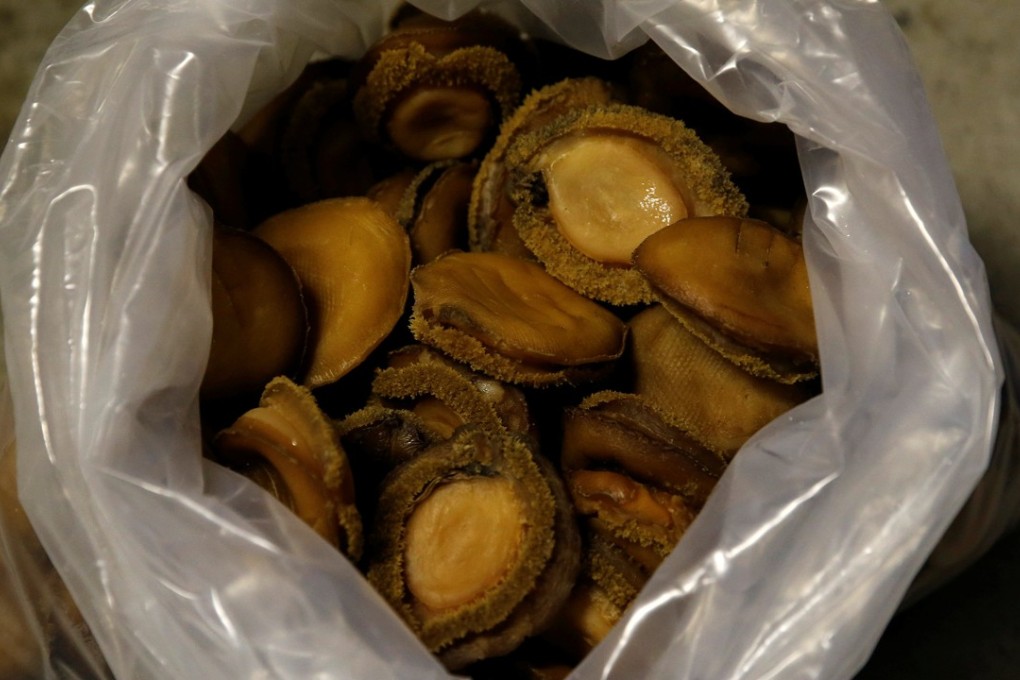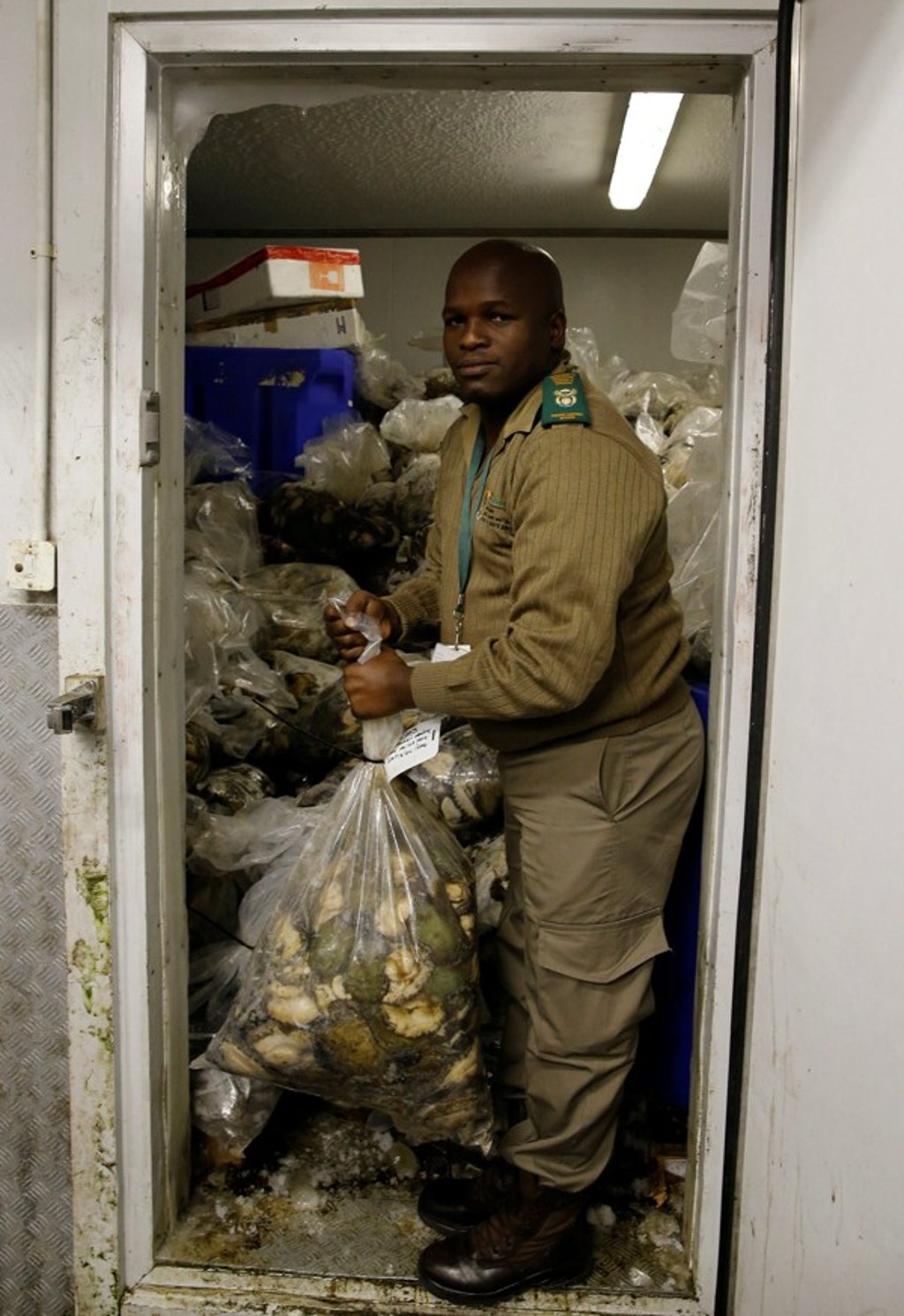Abalone demand by Chinese gangs depletes South Africa’s supply, costs the country US$60 million annually, report says
Chinese criminal syndicates use crystal meth as a reward for gangs in the Western Cape, a region that includes Cape Town, to dive for the coveted delicacy; the abalone is fished illegally and outside of quota systems, according to a wildlife trade monitoring network

Demand for abalone by Chinese gangs has caused South Africa’s stocks of the marine molluscs to be depleted at a record rate, costing the country US$60 million annually, a report has warned.
Wildlife trade monitoring network Traffic said the country’s coasts have been stripped of at least 96 million abalone in the last 18 years, with 9.6 million poached in 2016 alone.
“These are almost the highest – if not the highest – poaching levels we have seen in the last twenty or more years,” said the report published late Tuesday.

The once abundant high-end delicacy, a chewy sea snail with a distinctive salty taste, is popular at feasts and wedding banquets in the Far East.
Despite a mounting risk that abalone could become extinct, they were removed from the Convention on International Trade in Endangered Species of Wild Fauna and Flora list of at-risk species in 2010.
Chinese criminal syndicates use crystal meth as a reward for gangs in the Western Cape, a region that includes Cape Town, to dive for the coveted delicacy.